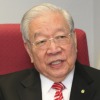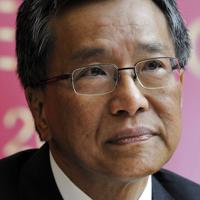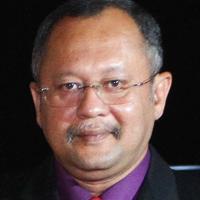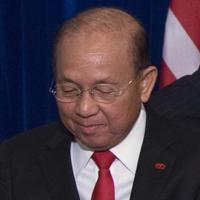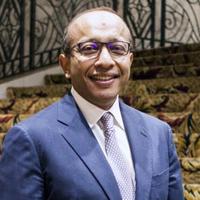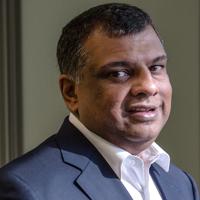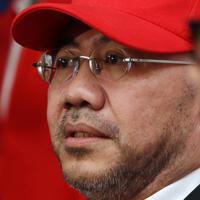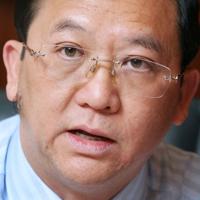https://www.najibrazak.com/bm/
https://www.najibrazak.com/bm/blog/ke-arah-malaysia-yang-lebih-kuat-dan-berdaya-saing/
memacu negara ke arah masa depan yang makmur, mampan dan inklusif untuk semua.
inisiatif Transformasi Nasional 2050 (TN50)
bercita-cita meletakkan Malaysia di pentas global; dan menjadi antara 20 negara teratas di dunia menjelang 2050.
ketika najib menjadi Perdana Menteri pada tahun 2009, cabaran ekonomi yang hadapi adalah amat besar. Semasa najib mengambil alih jawatan tertinggi negara pada April tahun itu, negara kita sedang berada di tengah kemelesetan global yang paling teruk sejak tahun 1930-an. Dasar ekonomi terbuka dan kebergantungan kita kepada perdagangan antarabangsa menyebabkan Malaysia terjejas teruk. Eksport kita menurun 20% sementara ekonomi kita menguncup dengan ketara sebanyak 6.2% pada suku pertama tahun 2009.
dibelenggu oleh isu-isu struktur dan legasi serius, dan ini antara lain mengakibatkan gaji rendah yang gagal menyaingi inflasi, harga kereta yang mahal, kadar kemiskinan yang tinggi, ketidaksamaan pendapatan, kenaikan kadar tol lebuh raya yang kerap, penurunan standard pendidikan, pengangkutan awam yang teruk, perjanjian Loji Kuasa Bebas (IPP) yang berat sebelah, serta kapitalisme kroni yang berleluasa. Kesemua ini memberi kesan buruk terhadap kebajikan rakyat. terlalu bergantung kepada minyak, gas dan komoditi
melaksanakan dua pakej rangsangan ekonomi besar bernilai RM67 bilion bagi menyalurkan wang ke dalam ekonomi kita
mereka yang berpendapatan rendah telah diagihkan RM5.36 bilion dalam Bantuan Rakyat 1Malaysia atau BR1M kepada 7.28 juta isi rumah pada tahun 2016 dan juga memperkenalkan gaji minimum.
Program Transformasi Negara “Najibnomics” Program Transformasi Ekonomi, atau ETP
untuk keluar daripada perangkap pendapatan sederhana dan mencapai matlamat menjadi negara berpendapatan tinggi, kita perlu mempunyai perancangan ekonomi yang menyeluruh dan berhemah- sebuah pelan tindakan, dengan petunjuk prestasi utama dan hasil yang boleh diukur supaya dapat menguji kemajuan dan memastikan kita terus berada di landasan yang tepat.
fasa pertama projek Mass Rapid Transit telah siap pada akhir tahun lepas, dan fasa kedua Laluan MRT Sungai Buloh-Kajang telah dilancarkan pada bulan Julai. Kini, kita mempunyai rangkaian perkhidmatan sepanjang 51 kilometer dengan 31 stesen.
Pada tahun 2017 telah melihat 14 MOU perniagaan antara Malaysia dan China bernilai RM144 bilion, 31 MOU perniagaan antara Malaysia dan India bernilai RM158.4 bilion, serta pelaburan USD7 bilion di Malaysia oleh Saudi Aramco. Ini membawa bersamanya beribu-ribu pekerjaan baru, pemindahan kemahiran, dan peningkatan taraf hidup untuk keluarga yang tidak terhitung jumlahnya.
pembangunan negara tidak sama rata, dengan Sabah, Sarawak dan Negeri-negeri Pantai Timur Semenanjung Malaysia ketinggalan.
membantu Kelantan dengan perjanjian penstrukturan semula air tahun lepas yang akan menelan belanja lebih daripada RM1 bilion.
Kerajaan membina Lebuhraya Central Spine Road bebas tol bagi menghubungkan Kelantan dengan seluruh Semenanjung, manakala fasa 3 Lebuhraya Pantai Timur akan dilanjutkan ke Kelantan.
membuat perjanjian penyusunan semula air dengan Pulau Pinang dan Selangor untuk membantu mereka mengurangkan hutang negeri dan menyediakan pembaharuan infrastruktur bekalan air yang diperlukan.
Lebuhraya Pan Borneo akan menjadi pemacu utama bagi pembangunan dan perhubungan di Malaysia Timur.
nilai ambang cukai pendapatan supaya mereka yang pendapatannya adalah RM4,000 atau kurang, tidak lagi perlu membayar sebarang cukai pendapatan. Ini bukan seperti dulu di mana mereka yang mempunyai gaji RM2,000 tetap dikenakan cukai.
mengurangkan cukai korporat daripada 27% hingga 24%. Kadar cukai pendapatan peribadi juga telah jatuh, daripada 28% pada tahun 2008 kepada 24% sekarang untuk kebanyakan rakyat Malaysia.
1MDB juga telah membiayai pembinaan dan penambahbaikan lapan pangkalan tentera. Ia juga telah membiayai beribu-ribu biasiswa dan perjalanan Haji untuk para jemaah.
https://www.najibrazak.com/bm/blog/ke-arah-malaysia-yang-lebih-kuat-dan-berdaya-saing/
memacu negara ke arah masa depan yang makmur, mampan dan inklusif untuk semua.
inisiatif Transformasi Nasional 2050 (TN50)
bercita-cita meletakkan Malaysia di pentas global; dan menjadi antara 20 negara teratas di dunia menjelang 2050.
ketika najib menjadi Perdana Menteri pada tahun 2009, cabaran ekonomi yang hadapi adalah amat besar. Semasa najib mengambil alih jawatan tertinggi negara pada April tahun itu, negara kita sedang berada di tengah kemelesetan global yang paling teruk sejak tahun 1930-an. Dasar ekonomi terbuka dan kebergantungan kita kepada perdagangan antarabangsa menyebabkan Malaysia terjejas teruk. Eksport kita menurun 20% sementara ekonomi kita menguncup dengan ketara sebanyak 6.2% pada suku pertama tahun 2009.
dibelenggu oleh isu-isu struktur dan legasi serius, dan ini antara lain mengakibatkan gaji rendah yang gagal menyaingi inflasi, harga kereta yang mahal, kadar kemiskinan yang tinggi, ketidaksamaan pendapatan, kenaikan kadar tol lebuh raya yang kerap, penurunan standard pendidikan, pengangkutan awam yang teruk, perjanjian Loji Kuasa Bebas (IPP) yang berat sebelah, serta kapitalisme kroni yang berleluasa. Kesemua ini memberi kesan buruk terhadap kebajikan rakyat. terlalu bergantung kepada minyak, gas dan komoditi
melaksanakan dua pakej rangsangan ekonomi besar bernilai RM67 bilion bagi menyalurkan wang ke dalam ekonomi kita
mereka yang berpendapatan rendah telah diagihkan RM5.36 bilion dalam Bantuan Rakyat 1Malaysia atau BR1M kepada 7.28 juta isi rumah pada tahun 2016 dan juga memperkenalkan gaji minimum.
Program Transformasi Negara “Najibnomics” Program Transformasi Ekonomi, atau ETP
untuk keluar daripada perangkap pendapatan sederhana dan mencapai matlamat menjadi negara berpendapatan tinggi, kita perlu mempunyai perancangan ekonomi yang menyeluruh dan berhemah- sebuah pelan tindakan, dengan petunjuk prestasi utama dan hasil yang boleh diukur supaya dapat menguji kemajuan dan memastikan kita terus berada di landasan yang tepat.
fasa pertama projek Mass Rapid Transit telah siap pada akhir tahun lepas, dan fasa kedua Laluan MRT Sungai Buloh-Kajang telah dilancarkan pada bulan Julai. Kini, kita mempunyai rangkaian perkhidmatan sepanjang 51 kilometer dengan 31 stesen.
Pada tahun 2017 telah melihat 14 MOU perniagaan antara Malaysia dan China bernilai RM144 bilion, 31 MOU perniagaan antara Malaysia dan India bernilai RM158.4 bilion, serta pelaburan USD7 bilion di Malaysia oleh Saudi Aramco. Ini membawa bersamanya beribu-ribu pekerjaan baru, pemindahan kemahiran, dan peningkatan taraf hidup untuk keluarga yang tidak terhitung jumlahnya.
pembangunan negara tidak sama rata, dengan Sabah, Sarawak dan Negeri-negeri Pantai Timur Semenanjung Malaysia ketinggalan.
membantu Kelantan dengan perjanjian penstrukturan semula air tahun lepas yang akan menelan belanja lebih daripada RM1 bilion.
Kerajaan membina Lebuhraya Central Spine Road bebas tol bagi menghubungkan Kelantan dengan seluruh Semenanjung, manakala fasa 3 Lebuhraya Pantai Timur akan dilanjutkan ke Kelantan.
membuat perjanjian penyusunan semula air dengan Pulau Pinang dan Selangor untuk membantu mereka mengurangkan hutang negeri dan menyediakan pembaharuan infrastruktur bekalan air yang diperlukan.
Lebuhraya Pan Borneo akan menjadi pemacu utama bagi pembangunan dan perhubungan di Malaysia Timur.
nilai ambang cukai pendapatan supaya mereka yang pendapatannya adalah RM4,000 atau kurang, tidak lagi perlu membayar sebarang cukai pendapatan. Ini bukan seperti dulu di mana mereka yang mempunyai gaji RM2,000 tetap dikenakan cukai.
mengurangkan cukai korporat daripada 27% hingga 24%. Kadar cukai pendapatan peribadi juga telah jatuh, daripada 28% pada tahun 2008 kepada 24% sekarang untuk kebanyakan rakyat Malaysia.
1MDB juga telah membiayai pembinaan dan penambahbaikan lapan pangkalan tentera. Ia juga telah membiayai beribu-ribu biasiswa dan perjalanan Haji untuk para jemaah.




